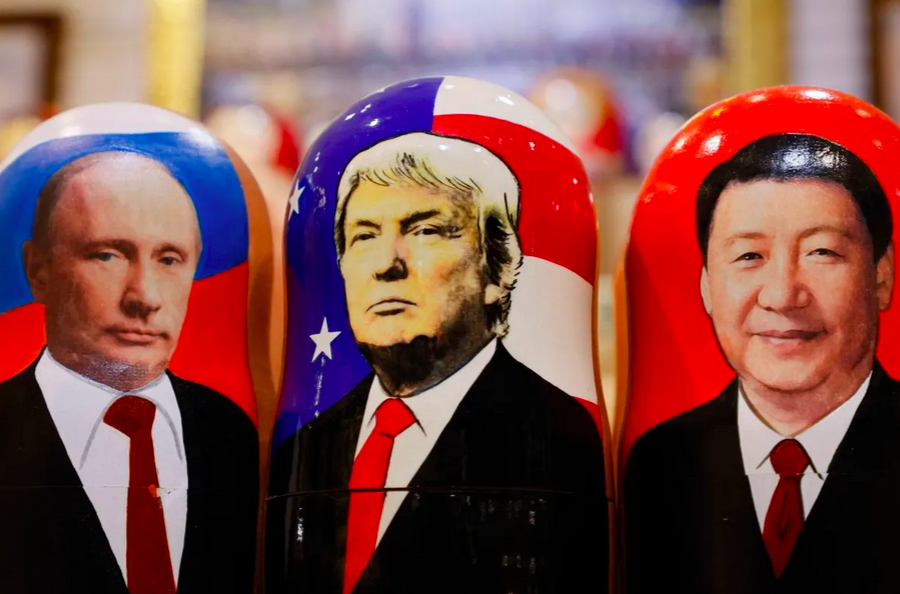Inside the US, a battle takes place between those who advocate retreat and those who demand restoration of global power. But Washington will have to accept limits of its power.
Inside the US, a battle takes place between those who advocate retreat and those who demand restoration of global power. But Washington will have to accept limits of its power.
By Adem Kılıç, Political Scientist/Author
The liberal rules-based international order built and maintained in the years after the Second World War is disintegrating at an accelerating pace.
After a period of “friendship” following the end of the Cold War, great power rivalry has returned with a vengeance to the global arena.
The Trump administration clearly emphasized the return of great power rivalry in its National Security Strategy published during its first term, and the developments of the last 3-5 years have further reinforced this view.
At this point, as the US’s margin of superiority over other powers has diminished, new power centers such as China, Russia, Türkiye and India have gained authority and influence.
More generally, the center of world power and dynamism is moving away from the core of the liberal order, the Euro-Atlantic community, and the world is moving towards an illiberal multipolarity, even if the US is resisting this idea.
Multipolarity and America’s future
Looking at this process, the United States has faced a multipolar world before, but rarely has it been so helpless.
In the early twentieth century, as its geopolitical ambitions expanded overseas, the United States consistently found a way to prevent a multipolar world by being a unique “moral force” in world affairs.
But now, with the Middle East, Iraq and especially Israel, the US seems to have lost this “moral force” approach altogether.
Until the Cold War ended in a US victory and a unipolar world emerged, the US maintained this global engagement unchallenged. But then the global policies implemented by the US brought the world to this point.
The multipolar world can no longer be fought!
Today, the unipolar world no longer exists, new centers of power continue to emerge, and the question facing the US is how to respond to the emerging multipolarity.
This great debate is currently dominated by two schools of thought. These can be characterized as those who propose “retreat” and those who advocate for “restoration”.
The defenders of retreat are trying to limit US engagement by returning to the pre-World War II approach to foreign policy, while the restorationists are trying to replicate the approach since the war and establish a fundamentally bipolar framework for engagement.
But of course, neither school of thought rules out the United States for active engagement in a truly multipolar world.
But whatever these schools of thought, there is no doubt that the United States cannot afford to remain aloof from global developments.
For, as has been the US approach for a century, in today’s interconnected world, beset by great power rivalries, regional balances must be constantly maintained.
While many restorationists describe the new axis of China, Russia, Iran and North Korea as an “axis of chaos”, the advocates of “retreat” want to engage with everyone in the new global order and not lose the United States.
Shaping the multipolar order
To succeed in a multipolar order, Washington will now have to rethink all its policies.
For a start, the US will have to come to terms with the fact that great powers by definition have strategic autonomy. Even those who have hitherto been “unconditional defenders” of US values may at times pursue interests at odds with the United States.
Washington will also have to accept the limits of its power.
Because of real-world limits, the United States will have to focus more sharply on a narrower set of priorities than in the past to defend and advance its vital interests.
In other words, in the emerging multipolar world, the US will no longer have the margin of superiority necessary to subjugate other countries to its will.
At this point, the US will either find ways to reconcile with new power centers such as China, Russia, Türkiye and India, or lay the stones for a more chaotic reality for itself.

















Leave a Reply